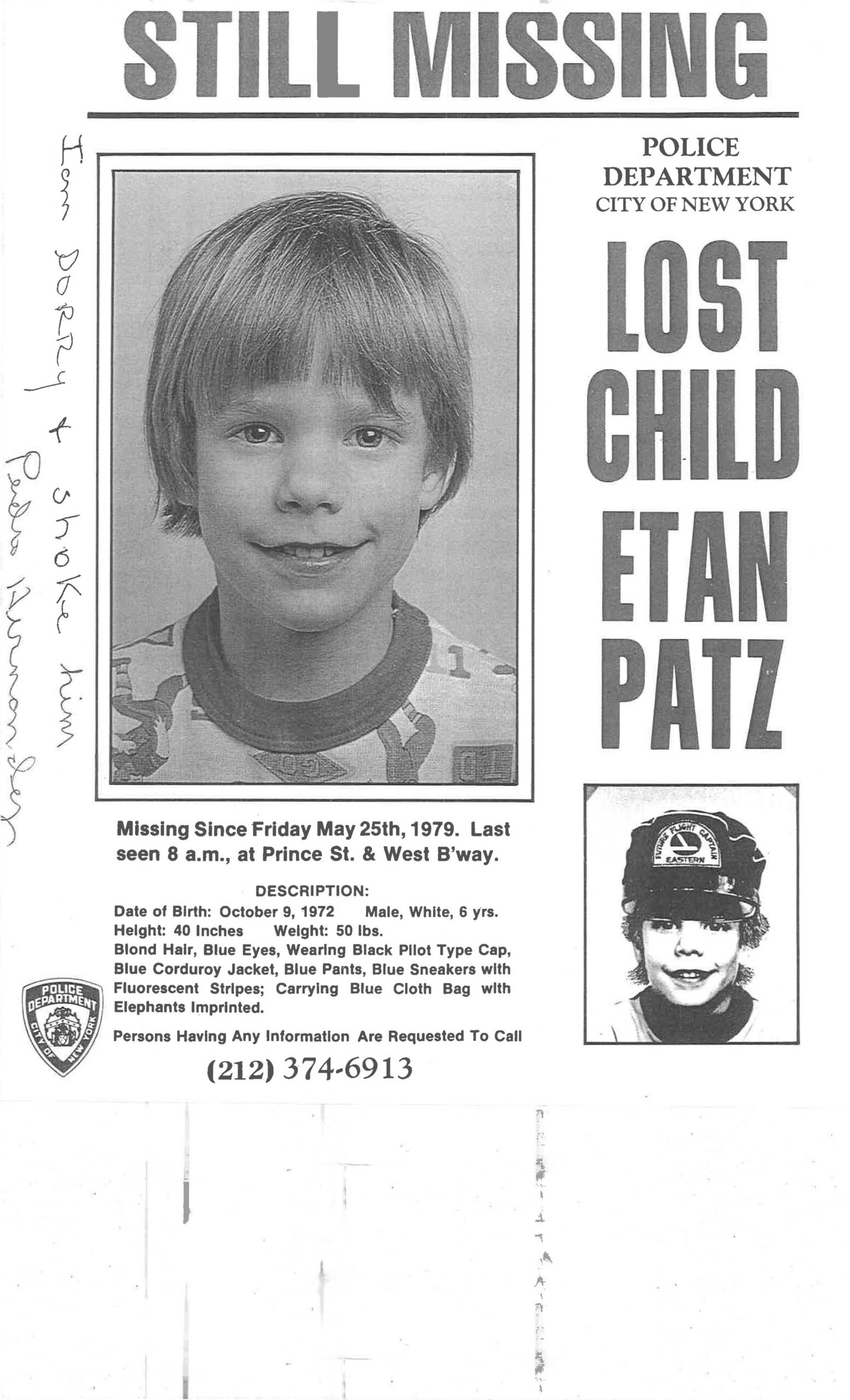An appeals court has ruled that the man convicted in the 1979 murder of 6-year-old Etan Patz must receive a new trial or be released. Pedro Hernandez, an 18-year-old bodega clerk at the time of Patz’s disappearance, was arrested decades later based on a tip from his brother-in-law to law enforcement. After an initial trial in 2015 ended in a hung jury, Hernandez was ultimately convicted in 2017.
Etan Patz disappeared on May 25, 1979 in SoHo at some point during the two-block walk from his family’s home to a bus stop. A massive manhunt followed, which was credited with popularizing the practice of putting photos of missing children on milk cartons. Patz would be declared dead in 2001, even as authorities continued to investigate his disappearance.

Hernandez was arrested in New Jersey after law enforcement tracked him down, and confessed to Patz’s murder. He told officers that he lured the boy into the store by offering him a soda, choked him to death, and disposed of his body in a garbage bag stuffed into a box that he left for trash pickup around the corner from the store. Hernandez did not provide a motive, and denied that there was anything sexual that motivated his actions.
The reversal of Hernandez’s conviction hinges on the admissibility of his confession to authorities at trial. Patz’s body was never found, and the decades-long gap between the crime and the trial without any investigation of the scene of the crime meant that no other physical evidence was available either, which gave even greater weight to his 2012 statement to law enforcement officers. The defense lawyers noted during trial that Hernandez has a very low IQ and mental illness that makes him confuse reality with imagination.
That statement, however, presents issues that the federal appeals court ultimately deemed worthy of tossing out the decision. Hernandez was only read his Miranda rights by law enforcement officers after he confessed seven hours into the interrogation, at which point they began recording him and read him his rights. During the second trial that resulted in his conviction, the jury sent multiple notes to the judge asking to clarify if subsequent recorded confessions made after his rights were read were valid if they found his initial confession to be “not voluntary.” The federal order handed down on Monday recounts that the judge responded to the jury that the “answer is no,” offering no further explanation.
Hernandez’s lawyers made multiple appeals against the verdict. First he went to the State Supreme Court, citing the 2004 federal case Missouri v. Seibert, which found that the tactic of obtaining a confession before reading a suspect their Miranda rights to be unconstitutional. The state’s highest court found the initial decision “correct” and ruled that any error in instruction was harmless. A subsequent appeal in federal district court on habeas relief acknowledged the error more directly and expressed doubt on the matter, but ultimately refused to overturn the decision.
This federal appeals panel, however, breaks with these decisions. “We agree with the district court that the state trial court’s instruction was clearly wrong under Seibert,” Monday’s order reads. “But, unlike the district court, we conclude […] that the error was manifestly prejudicial.”











